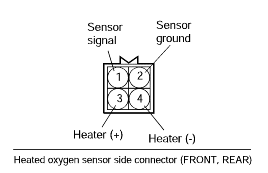Disconnect the oxygen sensor connector, and measure the resistance between terminal 3 and terminal 4.
Temperature °C (°F) | Resistance (Ω) |
400 (752) | 30 or more |

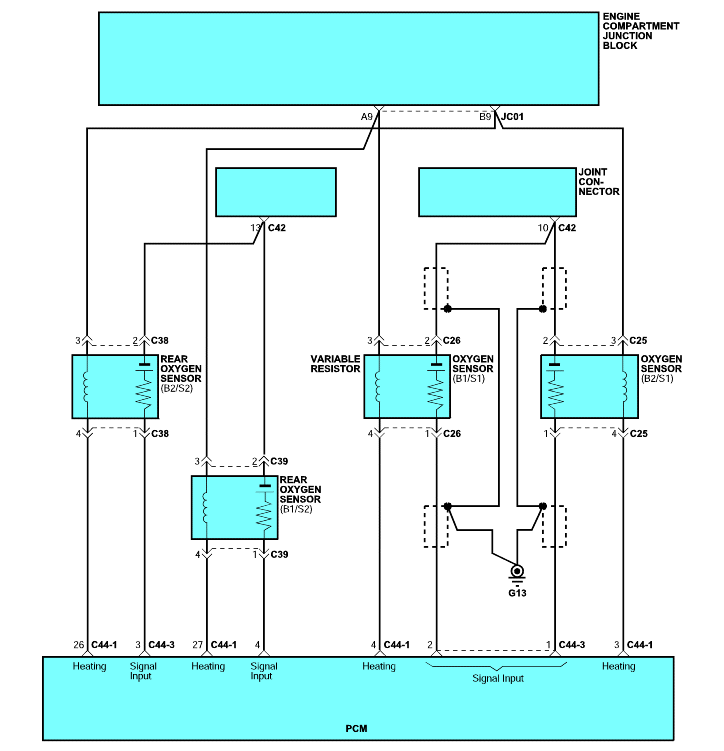
If the HO2S is defective, abnormally high emissions may occur.
If the HO2S check results are normal, but the sensor output voltage is out of specification, check for the following items (related to air fuelratio control system):
● Defective injector ● Air leaks in the intake manifold ● Defective volume air flow sensor, intake air temperature sensor, barometric pressure sensor and engine coolant temperature sensor. |
Check item | Check conditions | Engine state | Test specification (I4) |
Oxygen sensor | Engine: Warm-up (make the mixture lean by engine speed reduction, and rich by racing) | When sudden deceleration from 4,000 rpm | 200mV or lower |
When engine is suddenly raced | 600-1,000 mV | ||
Engine: Warm-up (using the heated oxygen sensor signal, check the air/fuel mixture ratio, and also check the condition of control by the PCM) | Idle | 400 mV or lower - (oscilate) 600~1,000 mV | |
2,000 rpm |
Before checking, warm up the engine until the engine coolant temperature reaches 80 to 95°C (176 to 205°F).
Use an accurate digital voltmeter.
Disconnect the oxygen sensor connector, and measure the resistance between terminal 3 and terminal 4.
Temperature °C (°F) | Resistance (Ω) |
400 (752) | 30 or more |

Replace the oxygen sensor if there is a malfunction.
Apply battery voltage directly between terminal 3 and terminal 4.
Be careful when applying the voltage. Damage will result if terminals 1 and 2 are connected to any voltage.
Connect a high-impedance digital-type volmeter between terminal 1 and terminal 2.
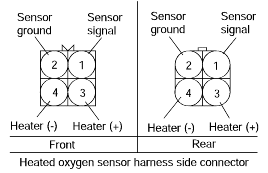
While repeatedly racing the engine, measure the oxygen sensor output voltage.
Engine | Oxygen sensor output voltage | Resistance (Ω) |
Race | Min. 0.6V | 30 or more |
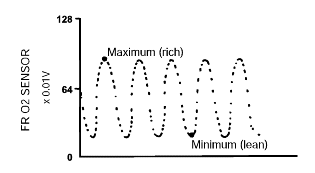
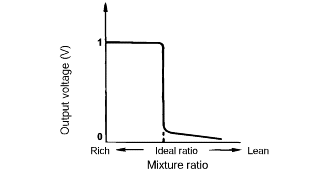
If there is a problem, there may be an oxygen sensor malfunction.
Tightening torque Heated oxygen sensor : |
40~50 Nm (400~500 kg·cm, 29~36 lb·ft) |
